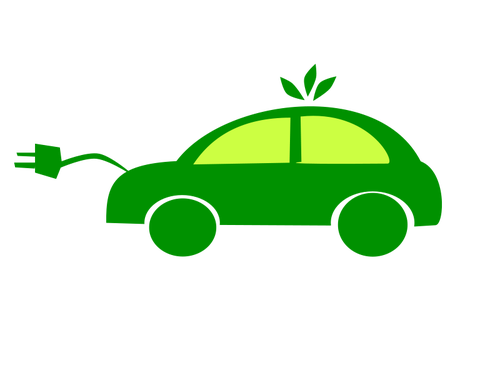Transport
The best way to cut your carbon emissions is to walk, cycle or use public transport wherever possible
We are lucky here in Pitlochry to have regular bus and train services
We are lucky here in Pitlochry to have regular bus and train services
There are plenty of things you can do in the town and the surrounding area that don't need a car - see our Car Free Pitlochry page for ideas
The Trainline website has info on train travel throughout the UK
The Trainline website has info on train travel throughout the UK
Electric cars or EVs
Electric cars produce no or fewer carbon emissions into the atmosphere. They also reduce air pollution which means with an increase in EVs and reduction of fuel vehicles on the road the air would be cleaner and less harmful
With fewer moving parts electric vehicles are far easier to service and maintain. Brakes, tyres and suspension are the main items which are shared by both EVs and conventional cars and would need to be checked
The newer models now have a driving range of up to 200 – 250 miles between charges and well maintained electric cars should be able to achieve 150,000 miles
There are some concerns about the CO2 produced during the manufacture of the EV batteries but with the change from coal fires power stations to solar and wind power this will improve
Car manufacturers are working towards using recycled car parts for new models. Improvements in battery technology and manufacture and the ability to recycle existing parts will reduce the reliance on raw materials needed at present
Ahead of any government initiatives some manufactures are introducing scrappage schemes to encourage customers to replace there existing fuel cars with an electric model
There are now more car charging points (27,000) in the UK than fuel filling stations. This number is increasing by around 600 per month
Further reading from the following web sites-
https://www.rac.co.uk/drive/advice/emissions/are-electric-cars-actually-worse-for-the-environment/
https://www.bbc.co.uk/newsround/50135750
And for an Australian take on the subject try this site.
https://www.ergon.com.au/network/smarter-energy/electric-vehicles/benefits-of-electric-vehicles
Peter Aitken
With fewer moving parts electric vehicles are far easier to service and maintain. Brakes, tyres and suspension are the main items which are shared by both EVs and conventional cars and would need to be checked
The newer models now have a driving range of up to 200 – 250 miles between charges and well maintained electric cars should be able to achieve 150,000 miles
There are some concerns about the CO2 produced during the manufacture of the EV batteries but with the change from coal fires power stations to solar and wind power this will improve
Car manufacturers are working towards using recycled car parts for new models. Improvements in battery technology and manufacture and the ability to recycle existing parts will reduce the reliance on raw materials needed at present
Ahead of any government initiatives some manufactures are introducing scrappage schemes to encourage customers to replace there existing fuel cars with an electric model
There are now more car charging points (27,000) in the UK than fuel filling stations. This number is increasing by around 600 per month
Further reading from the following web sites-
https://www.rac.co.uk/drive/advice/emissions/are-electric-cars-actually-worse-for-the-environment/
https://www.bbc.co.uk/newsround/50135750
And for an Australian take on the subject try this site.
https://www.ergon.com.au/network/smarter-energy/electric-vehicles/benefits-of-electric-vehicles
Peter Aitken
Flying
Ideally we should all be minimising the amount of flights we take. If we do choose to fly we can offset some of the carbon produced. There are numerous websites offering different ways to do this - basically it is a question of paying towards projects which help to reduce Greenhouse Gases
There is some controversy about offsetting and it shouldn't be seen as a way to completely neutralise the effects of flying
There is some controversy about offsetting and it shouldn't be seen as a way to completely neutralise the effects of flying
#Love My Bus# from Transform Scotland, the campaign for sustainable transport
The Love My Bus campaign reminds us of the many benefits of travelling by bus:
Better for the planet- less carbon footprint, cleaner air.
Better for us - a bit more exercise on the way to the bus stop
Better for our mental health - let someone else do the driving, some time to relax or socialise.
Better for our pocket - cheaper per mile than a car and free with a bus pass (if you're over 60. If you need a carer with you, you both travel free. Ask the council.) 1/3 off with a Young Scot card.
Some bus trips from Pitlochry:
Just over an hour to Aviemore (Citylink)- shop at Aldi instead of the long drive to Perth.
2 hours scenic ride to Inverness with connections to the north and west.
Take the bus to Perth or Dunkeld for a wander round the shops or lunch - no parking problems.
Admire the views on the way to Kinloch Rannoch - you have 4 hours for a walk and lunch, or just over an hour at Queen's View.
There are buses to House of Bruar, or further on to Struan and Calvine for walks.
There's a regular service to Aberfeldy via Ballinluig.
Website : https://lovemybus.scot/
Drop in Events: https://lovemybus.scot/events/
Survey: https://www.surveymonkey.co.uk/r/NKN9M2B
Better for the planet- less carbon footprint, cleaner air.
Better for us - a bit more exercise on the way to the bus stop
Better for our mental health - let someone else do the driving, some time to relax or socialise.
Better for our pocket - cheaper per mile than a car and free with a bus pass (if you're over 60. If you need a carer with you, you both travel free. Ask the council.) 1/3 off with a Young Scot card.
Some bus trips from Pitlochry:
Just over an hour to Aviemore (Citylink)- shop at Aldi instead of the long drive to Perth.
2 hours scenic ride to Inverness with connections to the north and west.
Take the bus to Perth or Dunkeld for a wander round the shops or lunch - no parking problems.
Admire the views on the way to Kinloch Rannoch - you have 4 hours for a walk and lunch, or just over an hour at Queen's View.
There are buses to House of Bruar, or further on to Struan and Calvine for walks.
There's a regular service to Aberfeldy via Ballinluig.
Website : https://lovemybus.scot/
Drop in Events: https://lovemybus.scot/events/
Survey: https://www.surveymonkey.co.uk/r/NKN9M2B





